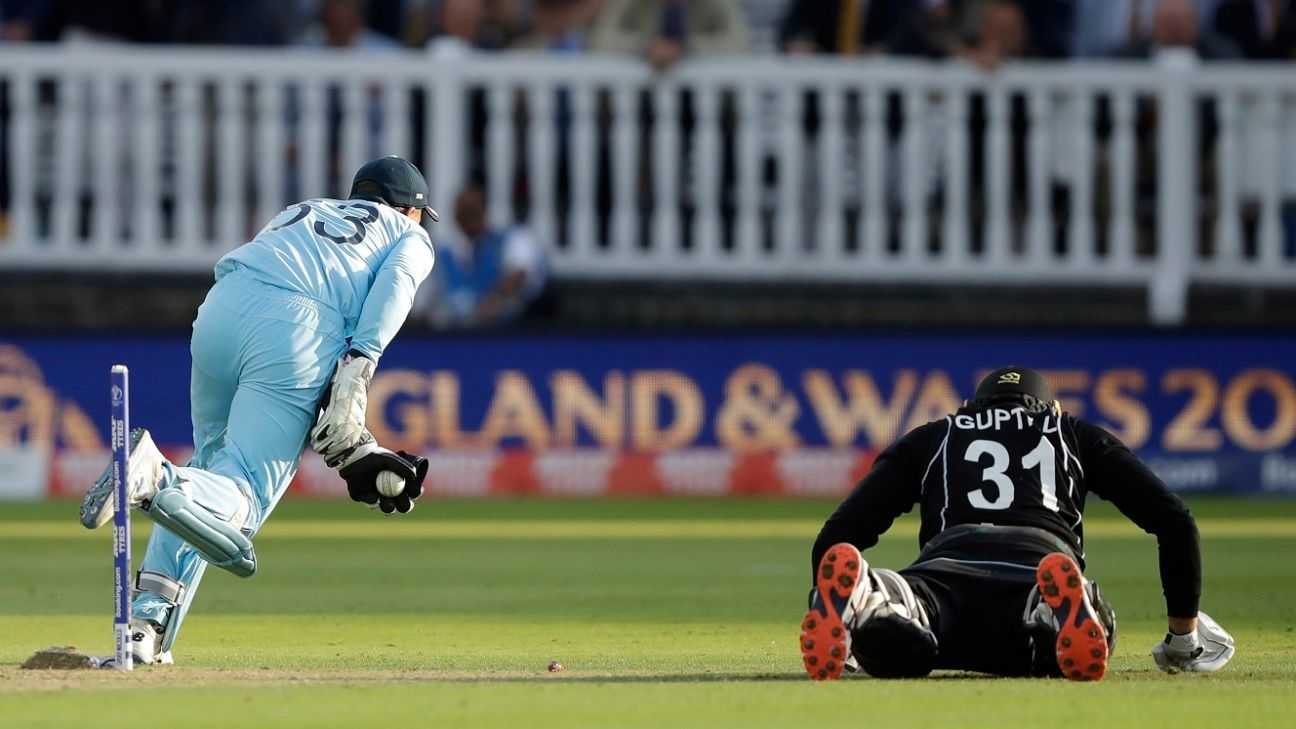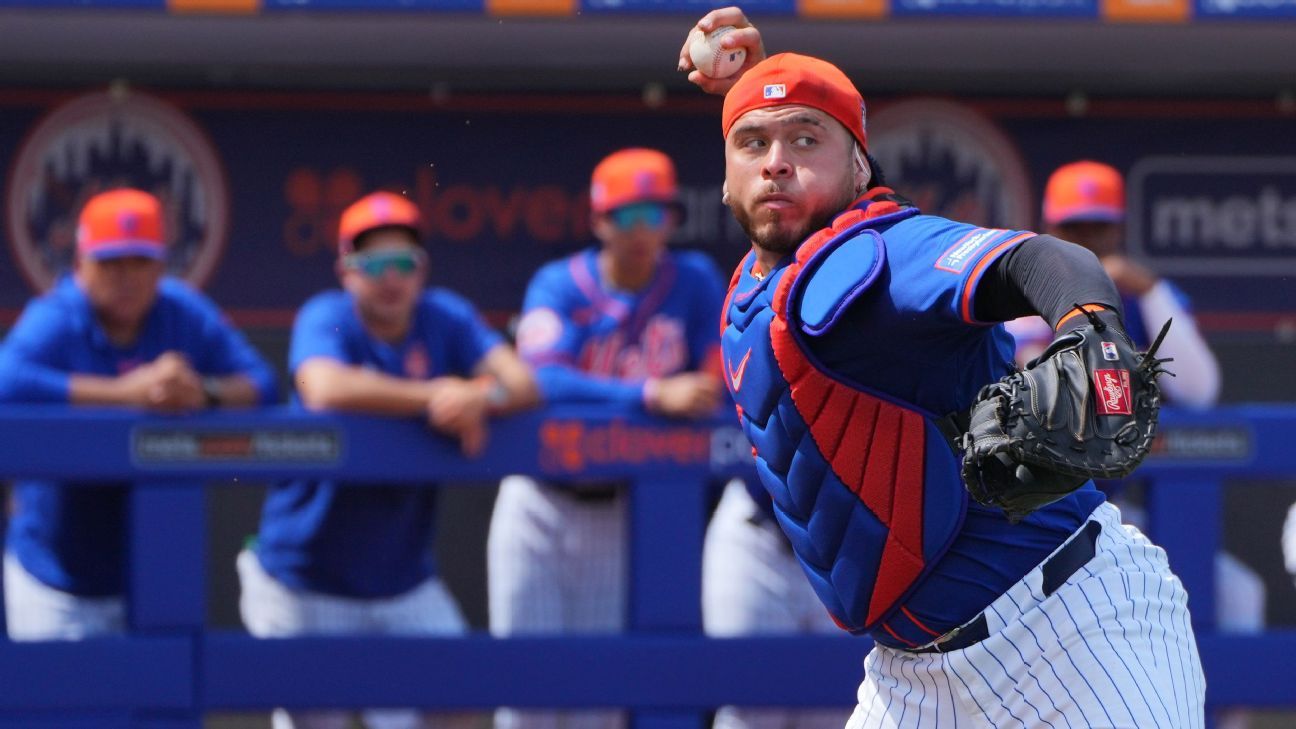
Jos Buttler is a World Cup winner now but just days before the final against New Zealand at Lord's, the fear of failure was haunting him. Thoughts of how he would ever play cricket again if England were to lose were creeping into his system.
Confounded by those demons, Buttler sought out the team psychologist David Young.
"I had played in eight finals before Sunday and lost seven of them," Buttler told The Daily Mail. "I'd played in lots with Somerset, the Champions Trophy with England [in 2013] and when we lost the [World] T20 [final] in Kolkata [in 2016] and I knew how much it hurt watching the other team lift the trophy. I didn't want to feel that pain and that regret again.
"What was scaring me was if we lost, I didn't know how I'd play cricket again. This was such a once-in-a-lifetime opportunity, a World Cup final at Lord's. It felt like destiny and I was thinking: 'If it doesn't happen, I will have no motivation to pick up a cricket bat for a very long time.' When I was talking to David, I knew the answers.
"I knew all I could look after was the stuff I could look after, and I needed to get into my zone, which allows me to perform the best I can. But what happens if it goes wrong?"
Buttler had a similar feeling midway through the World Cup when it looked like pre-tournament favourites England might not even make the semi-finals, having lost to Sri Lanka and Australia back-to-back.
"Before the India game, I was struggling with coming to terms with the prospect of us getting knocked out," Buttler said. "We'd been favourites, so highly fancied by everyone, and there was the danger that four years of playing such good cricket was going to come to nothing.
"Think about what people will say about us as a team, think about how they will call us chokers, everything else they will say. I remember seeing a comment -- maybe it was the one that got Jonny Bairstow wound up -- about how it would be the biggest failure because of how much had gone into this World Cup. I was struggling with the thought of that."
In the final, Buttler played a crucial role, first with the bat by scoring 59 and adding 110 for the fifth wicket with Ben Stokes, and then by completing the run-out dismissal of Martin Guptill off the last ball of the Super Over to seal the win for England.
Talking about his feelings just before that last ball, with New Zealand needing two to win with Guptill on strike, Buttler said: "If you're watching the game from the outside, you must think all the players must be so nervous as Jofra Archer is coming in to bowl that last ball. But as a cricketer, it's where you want to be. You're in the middle, you've got some control. You've done it time and again. Just because it's a final, it's still the same thing, collecting the ball and taking the stumps.
"You're on autopilot really. I felt very in-the-moment. Guptill pushed it off his legs and once I saw it going straight to Jason [Roy], I thought: 'If we get this right, we can win this'. I knew Guptill would be a long way out. Under pressure, nothing is simple but I knew it should be simple.
"When Jason picked it up, there was no thought he might misfield it. None of those thoughts happen. He picks it up, throws it to me and I take the stumps. I had to come down the pitch a little bit but I knew that as long as I collected the ball cleanly, I would have time to get to the stumps because he was a long way out.
"If I knew Guptill was going to be closer, I may have been more anxious or rushed it, but I knew I had some time to play with, so it was just as simple as making sure I got it in my hands."
While the Super Over ended in a tie, England became the winners based on the boundary count. The euphoria that followed, to Buttler, felt like the best time of his career.
"I knew the moment I broke the wicket, that was it. Both gloves went [off], I threw my hat in the air. I was running around and Moeen Ali was aeroplaning past me and Jofra was on the floor miles away. Those feelings justify everything. That moment lasts for 20 seconds, maybe, and it is just the best time of your cricket career.
"I'm 28 and for however long I have left in my career, I would just enjoy it and think: 'That happened'."















 Phone: (800) 737. 6040
Phone: (800) 737. 6040 Fax: (800) 825 5558
Fax: (800) 825 5558 Website:
Website:  Email:
Email: 






